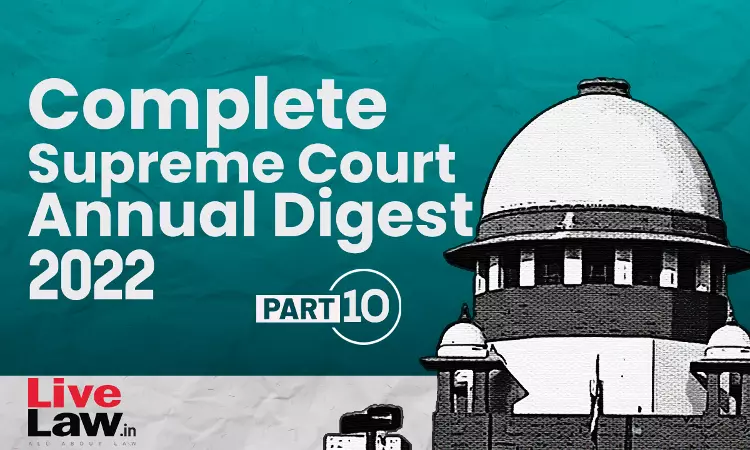- Home
- /
- Top Stories
- /
- Complete Supreme Court Yearly...
Complete Supreme Court Yearly Digest Part-10
LIVELAW NEWS NETWORK
22 Feb 2023 11:24 AM IST
RRajiv Gandhi Assassination CaseRajiv Gandhi Assassination Case - Supreme Court orders premature release of all 6 convicts. R.P. Ravichandran v. State of Tamil Nadu, 2022 LiveLaw (SC) 954Ratio DecidendiRatio Decidendi - Final relief granted need not be the natural consequences of the ratio decidendi of its judgment. (Para 26) B.B. Patel v. DLF Universal Ltd; 2022 LiveLaw (SC) 90 : AIR 2022 SC...
Next Story



